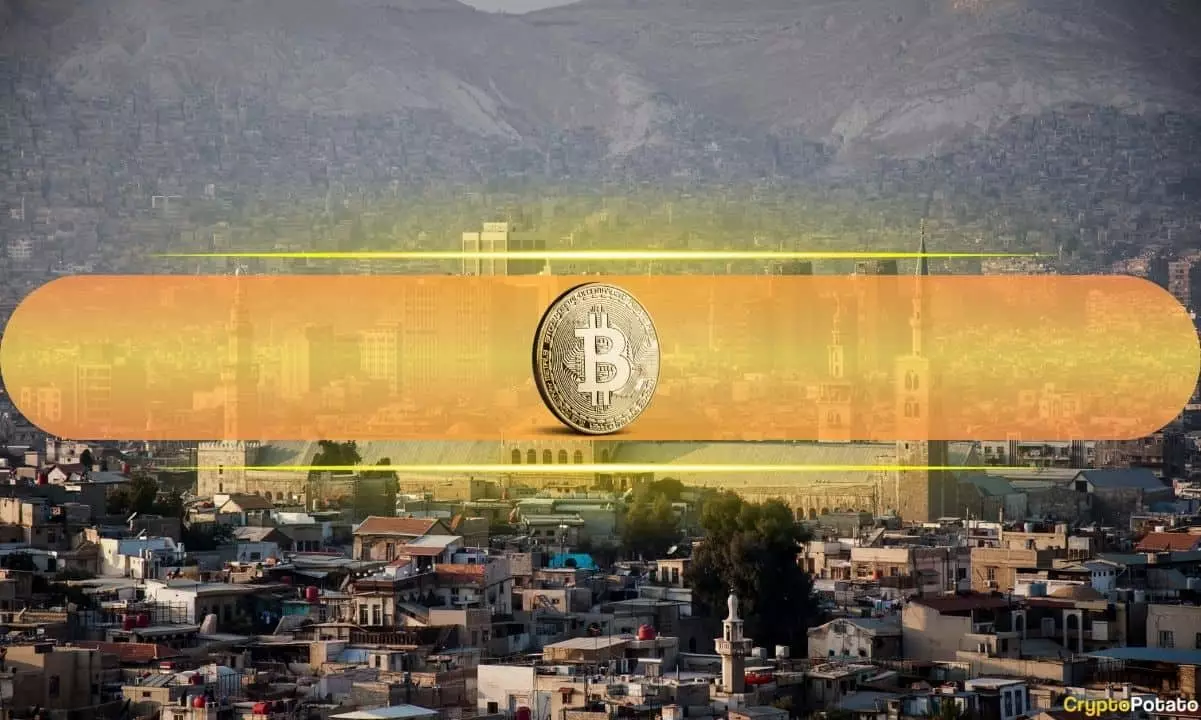Syria has been grappling with a profound economic crisis for over a decade, exacerbated by a devastating civil war, hyperinflation, and a significant devaluation of its national currency, the Syrian pound. The social and economic fabric of the country has been torn apart, leading to widespread poverty and unrest. In light of this dire situation, the Syrian Center for Economic Research (SCER) has put forth a bold proposal that seeks not only to stabilize the current economic conditions but also to redefine Syria’s financial landscape through the legalization of Bitcoin and the digitization of the Syrian pound.
At the heart of SCER’s proposal lies the concept of building a robust digital economy. This initiative is aimed at not just repairing the existing infrastructure but rather constructing a dual banking system that encompasses both centralized and decentralized platforms. By introducing Bitcoin and various digital assets into the legal framework, the SCER believes this transition could engender a revolution in the way Syrians conduct financial transactions. Such a move holds the potential to combat rampant inflation and give a much-needed boost to foreign investment in a region that has been previously deemed too hazardous for international economic engagement.
One of the cornerstone elements of the proposal is the creation of a comprehensive regulatory framework governing the exchange, trade, and mining of cryptocurrencies. This framework aims to align the local policies with international standards, thereby potentially attracting investment from abroad while simultaneously ensuring security and transparency in financial transactions. A key element of this approach is the digitization of the Syrian pound, proposed to be anchored on a blockchain system backed by tangible assets, such as gold and other reserves. This smart integration of technology could ensure a higher level of trust from both local and global stakeholders.
In addition to macroeconomic stabilization, the initiative aims to encourage entrepreneurship within Syrian borders. By creating an open-market environment, the SCER hopes to empower local innovators and small businesses to thrive free from monopolistic restraints that have long plagued the economy. Moreover, the proposal emphasizes fostering private property rights, which would enable citizens to genuinely claim ownership of their digital assets and engage in commerce securely. This empowerment could significantly enhance economic resilience, providing young entrepreneurs with the means to drive growth, creativity, and innovation.
Despite the promise illuminated by SCER’s proposal, the reality on the ground presents a multitude of challenges that need to be overcome. Syria currently lacks the necessary technological infrastructure to adopt such a radical shift in its financial system. Furthermore, public comprehension of cryptocurrencies remains limited, and geopolitical realities have perpetually hindered the nation’s recovery efforts. Compounding this, SCER has made it clear that the transitional government has not yet endorsed this proposal, and it remains unclear whether such an initiative will be prioritized amid the urgent issues facing the state.
A significant nuance in this discussion is the perspective on international sanctions. SCER has made it explicitly clear that the initiative is not intended as a means to bypass these sanctions. Instead, there are calls led by the newly appointed Foreign Minister, Asaad Hassan al-Shibani, for a reconsideration and urgent lifting of these measures. Initially imposed to address the government’s oppressive actions, these sanctions are now seen as detrimental to the very citizens they intended to protect. Al-Shibani’s appeals for reassessment highlight a potential turning point in Syria’s relationships with international bodies and could lay the groundwork for the nation’s economic revival.
The future of Syria’s economic landscape hinges on a combination of technological evolution, regulatory reform, and international collaboration. While the SCER’s proposal represents a forward-thinking strategy aimed at stabilization and growth, the success of such an initiative will depend on the collective action of the Syrian government, its citizens, and global stakeholders. Only through these concerted efforts can a new economic dawn rise over Syria, paving the way toward lasting recovery and prosperity. The bold steps taken toward digital currency may very well be the lifeline needed to revive a nation yearning for stabilization and growth.


Leave a Reply